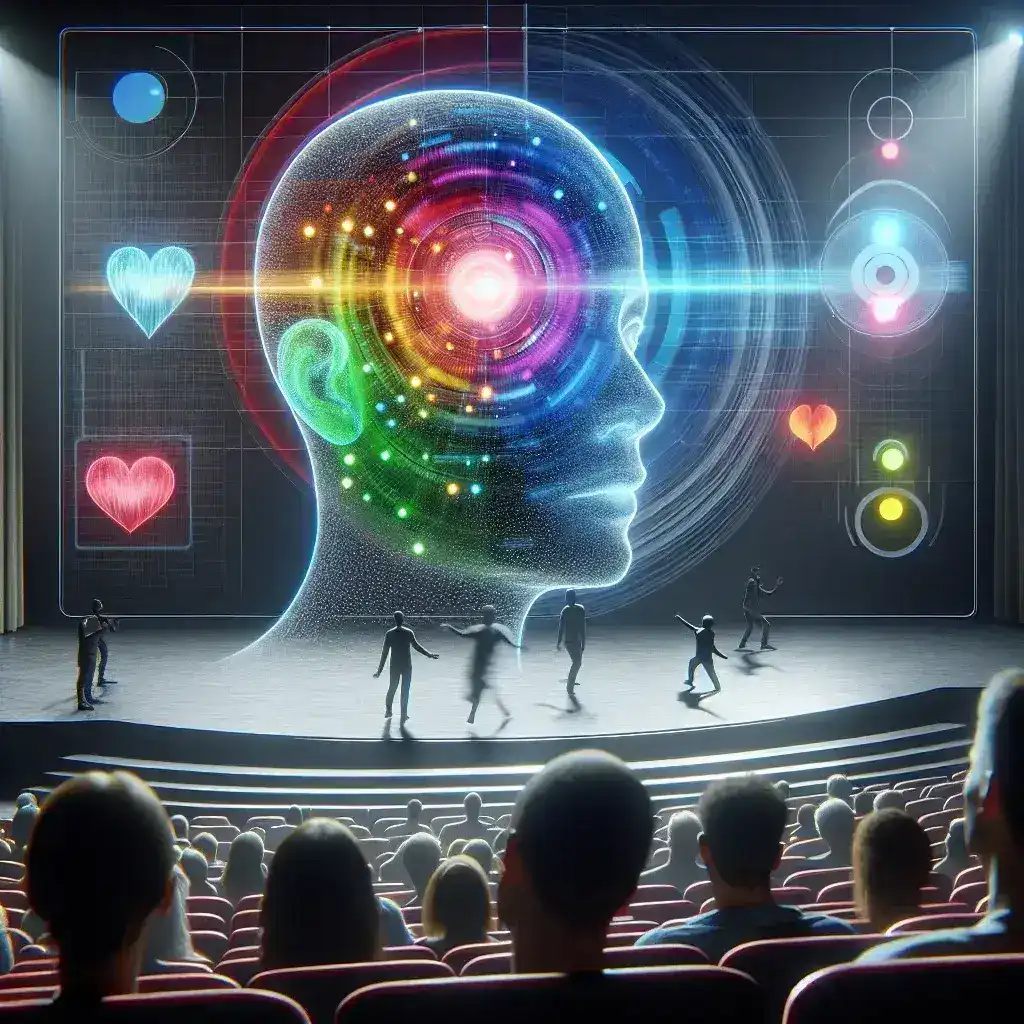Introduction
In the ever-evolving landscape of entertainment, Netflix stands at the forefront of innovation. Recently, the streaming giant has embarked on an ambitious project to integrate artificial intelligence (AI) into its storytelling mechanisms. This initiative, focused on character emotion mapping in U.S. dramas, promises to revolutionize how narratives are crafted and consumed. By leveraging AI, Netflix aims to enhance emotional engagement, creating a more immersive viewing experience for audiences.
The Concept of AI-Powered Emotion Mapping
Emotion mapping through AI involves the use of sophisticated algorithms and machine learning to analyze characters’ emotional states throughout a narrative. This technology allows creators to visualize how emotions ebb and flow, providing insights that can shape the storytelling process. By understanding the emotional arcs of characters, writers and directors can craft more compelling and relatable narratives.
Historical Context
The journey towards integrating technology into film and television is not new. From the advent of sound in the late 1920s to the introduction of CGI in the 1990s, each technological milestone has significantly impacted storytelling methods. However, AI represents a new frontier, offering unprecedented capabilities in analyzing human emotions.
How It Works
The AI-powered character emotion mapping involves several key components:
- Data Collection: The AI system analyzes vast amounts of data from scripts, dialogue, and even actor performances to identify emotional cues.
- Emotion Recognition: Using natural language processing and sentiment analysis, the AI categorizes emotional expressions, ranging from joy to sadness.
- Visualization: The emotional data is then visualized, creating graphs or charts that depict the emotional journey of characters throughout the narrative.
Benefits of AI Emotion Mapping
Integrating AI into the creative process brings numerous advantages:
- Enhanced Storytelling: Understanding character emotions allows writers to create deeper, more resonant stories that connect with audiences.
- Targeted Marketing: By analyzing viewer reactions, Netflix can tailor marketing strategies to highlight emotional moments that resonate with potential viewers.
- Improved Viewer Engagement: With more relatable characters, audiences are likely to become more invested in the stories being told.
The Future of Drama with AI
The implications of AI-powered emotion mapping extend beyond mere storytelling. As Netflix continues to refine this technology, we can anticipate a future where:
- Interactive Viewing Experiences: Imagine a scenario where viewers can choose the emotional direction of a story, guided by AI insights.
- Customized Content: AI could help create personalized viewing experiences, suggesting shows based on emotional preferences.
- New Genres: The evolution of storytelling may lead to the emergence of new genres driven by AI insights, offering fresh narratives that challenge traditional formats.
Expert Opinions
Industry experts have begun to weigh in on this innovative approach. Dr. Emily Tan, a media analyst, states, “AI in storytelling is not just about efficiency; it’s about elevating creativity to new heights. The potential for emotional resonance is vast, and Netflix is pioneering this shift.”
Real-World Examples
Netflix’s pilot program is not the first of its kind. Other industries, such as gaming and advertising, have successfully utilized emotion mapping to enhance user experiences. For instance, video games analyze player reactions to modify gameplay, creating adaptive and emotionally engaging experiences. Netflix aims to apply similar principles to its dramas, which may set a new standard in the industry.
Challenges and Considerations
Despite the benefits, several challenges accompany the integration of AI in storytelling:
- Data Privacy: Collecting and analyzing viewer data raises privacy concerns that must be addressed to maintain user trust.
- Creative Limitations: Relying too heavily on AI could stifle creativity, as writers may become dependent on algorithmic suggestions rather than their instincts.
- Technical Limitations: The technology is still developing, and ensuring accuracy in emotion recognition remains a challenge.
Cultural Relevance
In today’s diverse society, the ability to map emotions accurately is crucial for creating relatable content. By understanding the emotional responses of various demographic groups, Netflix can produce dramas that resonate across cultural lines, fostering inclusivity and understanding.
Conclusion
Netflix’s venture into AI-powered character emotion mapping in U.S. dramas represents a significant leap forward in storytelling. By harnessing technology to deepen emotional engagement, Netflix not only enhances its content but also sets a precedent for the future of entertainment. As viewers, we can look forward to more immersive, relatable, and emotionally rich narratives that reflect the complexities of human experiences.

